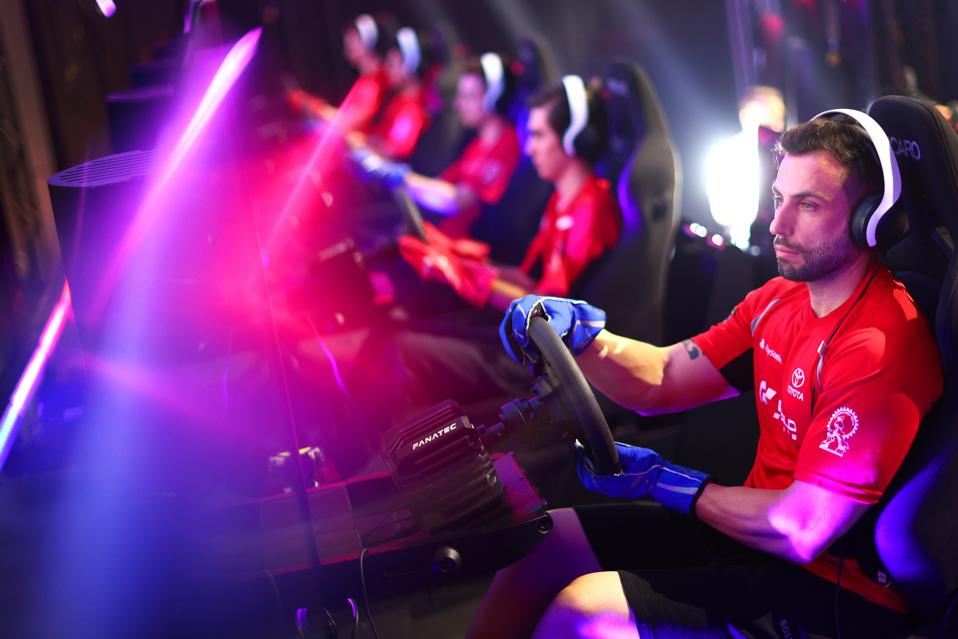There was a time when multiplayer gaming involved squashing onto a couch with your buddies and sharing a TV screen together. The advent of online gaming changed the way we interacted with other players. Suddenly we could play Halo 2 and FIFA against people from around the world.
That ability gave birth to esports – tournaments where professional gamers compete in games like League of Legends and Overwatch to win money. Through advertising, sponsorship and merchandise sales, the industry has grown in value exponentially. It is predicted that it will be worth around $5 billion by the end of 2025.
Last year, the inaugural esports World Cup was held in Saudi Arabia and in 2027, the country will also host the first Olympic Esport Games. As this year’s World Cup gets underway, I spoke with the tournament’s CEO, Ralf Reichert, about how the esports industry has grown and why video games are so popular.
How has the esports industry grown?
Esports is probably the biggest sport in the world that the mainstream doesn’t know about. There’s 3.4 billion people playing video games and we have 700 million esports fans. I remember playing esports tournaments in London back in 1998/1999. It was the place to be but [the industry]
was very small then. With the internet and later mobile phones becoming ubiquitous, video games became the most normal thing for a young person to play with. Then in the mid 2010s, esports tournaments began to fill stadiums. That was the time where everything changed. Now, there’s almost no-one below the age of 35 who isn’t playing games.
Where will the esports industry go in the future?
If you look at the esports industry now, it’s probably only ranked in the top ten sports in the world but it will certainly become a top three sport. I think that’s natural because of a demographic change. More and more people are growing up with video games. They’re more accessible too with phones as everyone has a super high performance computer in their pocket. That will continue to make esports grow.
Now with the esports World Cup and the Olympics, the industry has moved from being a private business to something that has become more integral to society. It will continue to grow for the next ten or twenty years in a very linear manner and it’ll become more socially relevant.
Which traditional sports will esports be bigger than?
I assume football (soccer) will be on top. In terms of commercialisation, the NFL is unbelievably big and then cricket [is huge] because of its presence in Asia. Esports will have to get ahead of one of those three but I can’t say which one it’ll surpass right now.
Why do people want to watch others play video games?
That question applies to any sport and entertainment form. You’re watching someone, like a gaming influencer, who is funny or witty. You watch them on a regular basis and follow their life and leisure activities. It’s not so different from soap operas or documentaries where you follow people.
Then if you look at it from a competitive aspect, esports is the same as any traditional sport. Sport is a meaningful thing. There’s always a social context around it like the UEFA Champions League [in football] and that’s the same for video games. Sport is also non-scripted so no-one knows how it’ll end.
People also watch esports because you get to see the best players perform. There’s always an element of seeing someone perform at a level which is higher than you’ve seen before. You can then jump into the game yourself and try to recreate what you’ve just watched. In sports like football or tennis, that’s a little harder as you need to leave the house and find a place to play with someone else. In video games it’s just a click away so translating what you’ve see from theory into practice is much easier. It has a more direct impact on your life.
Why is gaming so popular in the modern era?
There are three reasons. Number one is accessibility. Video games have such a low barrier for entry with consoles and PCs being available across the world. Smartphones are easy to access too.
Number two is that games are inherently social and competitive. It means you can play together and against people from all over the world at the click of a button. Compared to a lot of other activities, games have this huge social mould.
Number three is that games put you into a world that you can only imagine. Here, you can not only read or listen to fiction, but you can actually create it. That’s unbelievable because it’s not only a medium you can consume, it’s a medium where you can tell a story and it’s not something that’s been done before.
The esports World Cup began on July 8 and will conclude on August 24.

